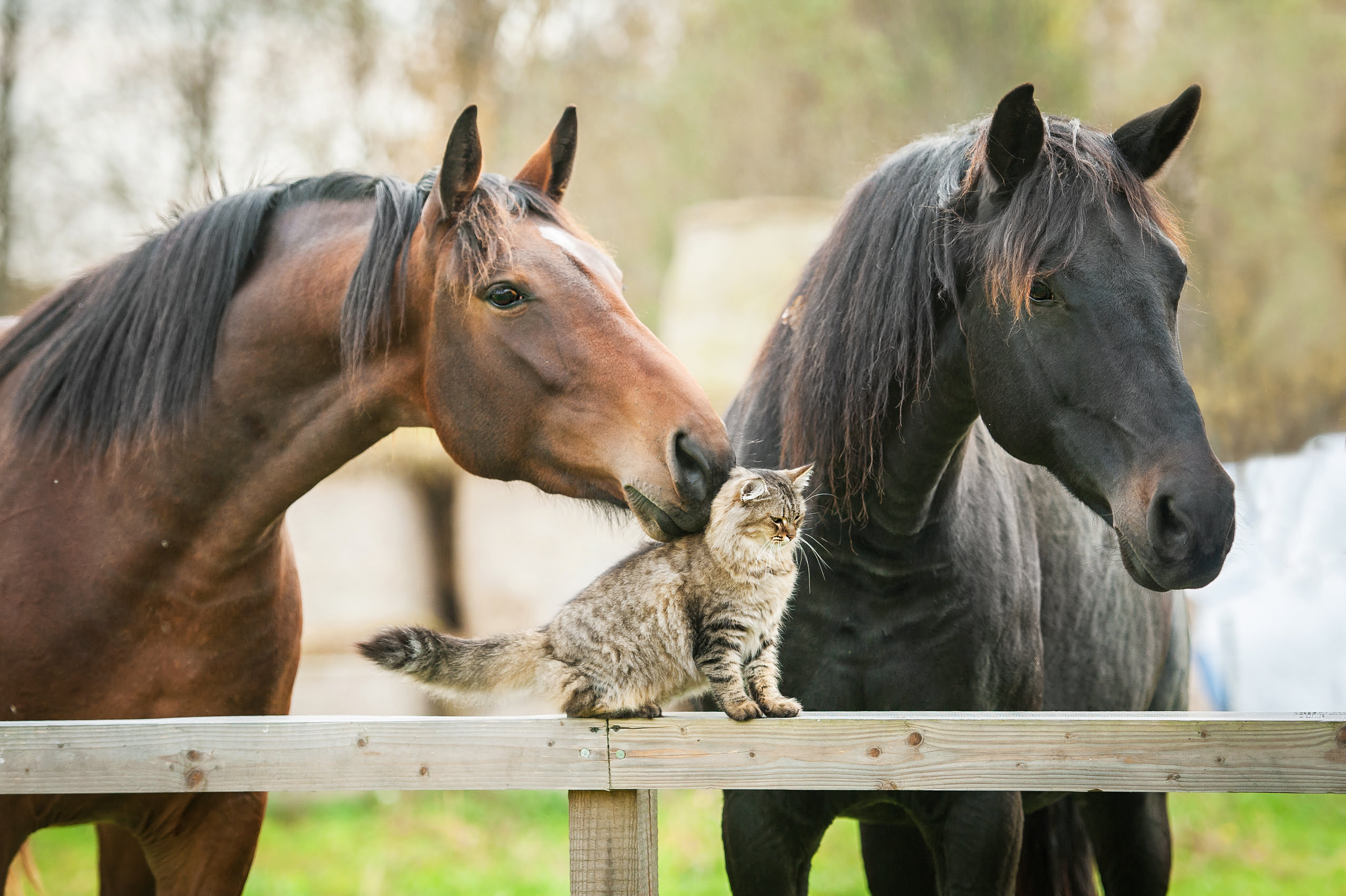By Sarah Wanless
As every horse rider and barn owner knows, rodents and pests are part and parcel of the equestrian industry. We all spend lots of our hard-earned rands every month on pest control, be it for keeping our feed safe from rats or just trialing one of the numerous bug sprays out there.

Here we propose a slightly different solution – the barn cat – and while not all people are ‘cat people’, the benefits of having a barn cat are undeniable.
- Cats eat bugs. Like many other small carnivorous mammals, cats catch and eat insects as a source of food and protein. Let’s face it, at the yard we are always trying to get rid of bugs – why not use a cat and simply let the circle of life do its work?
- They make excellent exterminators. They are not only cost-effective, but also eco-friendly! Despite all the tried and tested methods, there will always be rodents of some sort running around in our feed and storage rooms looking for a place to nest or some food to eat. Having a few cats around your property will more than likely cause these troublesome populations to decline.
- An added bonus of cats is that you don’t have to use poisons that ultimately end up impacting the wildlife in the area, which has large knock-on effects. When a poisoned rodent dies it is often consumed by a bird of prey, such as an owl or eagle, or smaller wildlife in the area such as a jackal. These animals ultimately die from second-hand poisoning due to the ingestion of these rodents. By using cats instead of poison, we help prevent the increasing issue of wildlife poisoning.
- Cats also allow you to save money on fly sprays, bait, traps and pest controllers. While they absolutely require proper care and are not just to be left to their own devices, for every rodent or bug they eat there is one less pest eating your feed, and destroying your tack.
- Cats are relatively low maintenance. Despite the odd trip to the vet for routine vaccinations, cats need very little but give you a whole lot in return.
- Cats keep other cats away. If you already have a feral colony on your property you are off to a great start. By simply removing the colony you just make room for new feral cats to come in. Instead, by feeding and caring for them, you can use them for pest control. Speak to your vet or other cat experts about what they need, how to keep them healthy and how to go about getting them sterilised. If you can manage to give this resident colony a purpose, and a home, you have control over the pests at the barn and are doing a great service to these animals and animals in general!
- You get to give orphaned animals a home. Most barn cats are usually stray, orphaned or feral cats who would otherwise have nowhere to call home. By adopting some barn cats, not only do you give them a purpose, but you also give them a safe place. Who doesn’t love the idea of rescuing a fur-baby or two?
- Who doesn’t love the funny antics that cats are known for? Having cats around makes the barn a happier place.
- In certain instances, cats are known to be great companions, not only to humans but to other animals as well, including dogs, cows, sheep and horses. While this may not be the reason to keep them around the barn, it is certainly an added bonus.

Tips and tricks
- Get them young – and yes, we mean them, as everyone likes to have a buddy for hunting, playing and cuddling. Getting them as kittens is an easy way to establish a home area and a routine job, and it also means that they are less likely to decide to relocate to a more luxurious pad. If you don’t want kittens, it is also possible to get feral cats in need of new homes through various organisations.
- Start by keeping them in an isolated space in the barn, with a litterbox, food and water and a warm place to sleep – a stable is often a good starting point. Once they get older, they should start to roam and hunt.
- Food and water are essential – a mouse-only diet is not sufficient and daily feeding provides an incentive for the cats to remain in the barn. Feeding twice daily is sufficient but be sure to place the food out of reach of vermin and remove any uneaten food.
- As with all animals, cats and kittens will need routine healthcare, in the form of deworming, treating for fleas and vaccinations.
- Be responsible and spay and neuter your cats, otherwise you are adding to the problem of feral cats running around the neighbourhood. If you want to keep stable cats indefinitely it can be tempting to breed, but it is ethically better to adopt rather than breed your own.
- You’ve all heard the saying ‘curiosity killed the cat’? Well, it isn’t entirely unjustified! Cats are naturally curious, so please make sure to keep anything that may be toxic to them out of their reach.

Important: It goes without saying that taking on barn cats is a serious responsibility. If you are contemplating this course of action, do some research and chat to your vet to see what they think. Also ensure that the cats will be safe on your property and that you are in a position to offer them the food and veterinary attention they will require.

